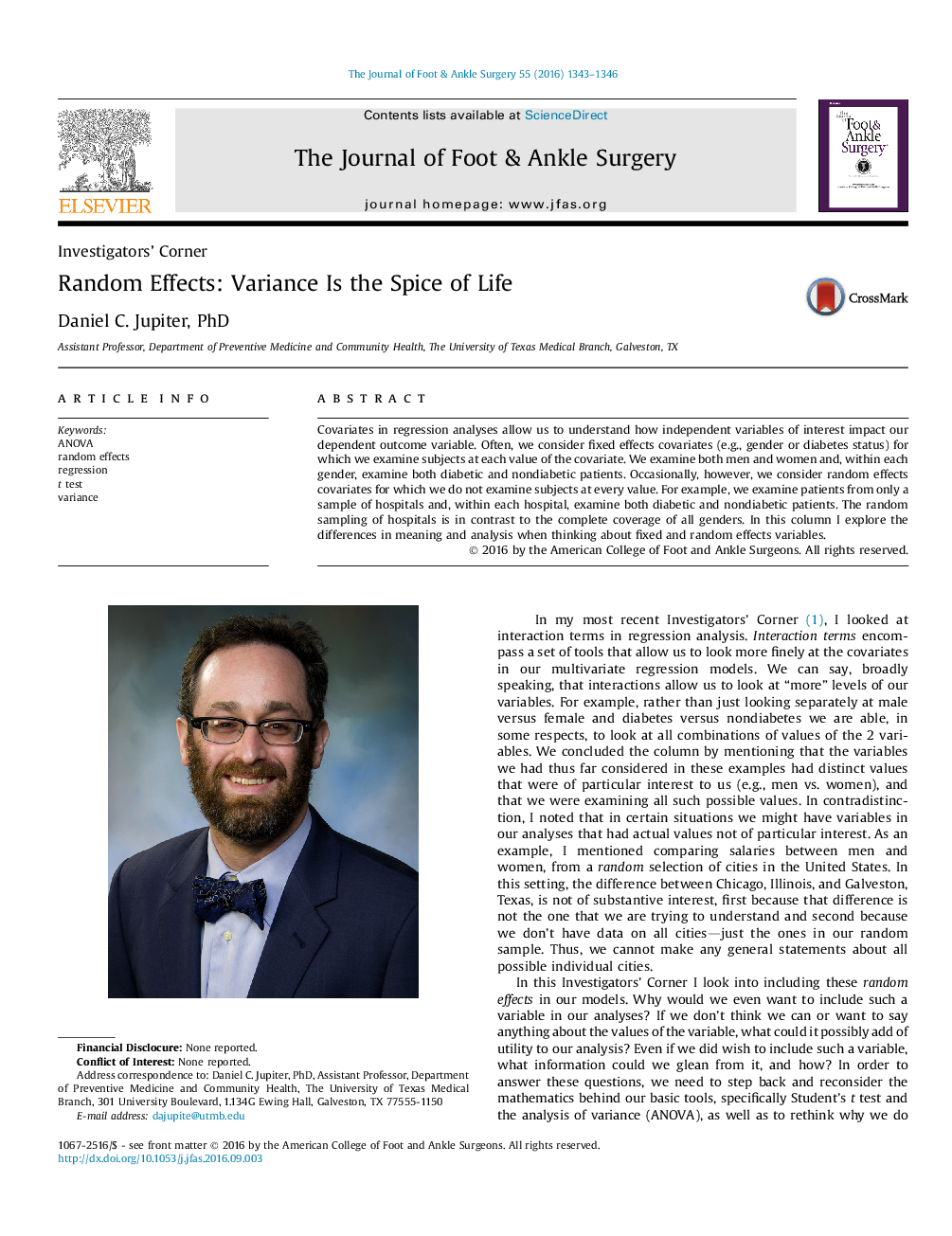| Article ID | Journal | Published Year | Pages | File Type |
|---|---|---|---|---|
| 5576160 | The Journal of Foot and Ankle Surgery | 2016 | 4 Pages |
Abstract
Covariates in regression analyses allow us to understand how independent variables of interest impact our dependent outcome variable. Often, we consider fixed effects covariates (e.g., gender or diabetes status) for which we examine subjects at each value of the covariate. We examine both men and women and, within each gender, examine both diabetic and nondiabetic patients. Occasionally, however, we consider random effects covariates for which we do not examine subjects at every value. For example, we examine patients from only a sample of hospitals and, within each hospital, examine both diabetic and nondiabetic patients. The random sampling of hospitals is in contrast to the complete coverage of all genders. In this column I explore the differences in meaning and analysis when thinking about fixed and random effects variables.
Related Topics
Health Sciences
Medicine and Dentistry
Orthopedics, Sports Medicine and Rehabilitation
Authors
Daniel C. PhD,
